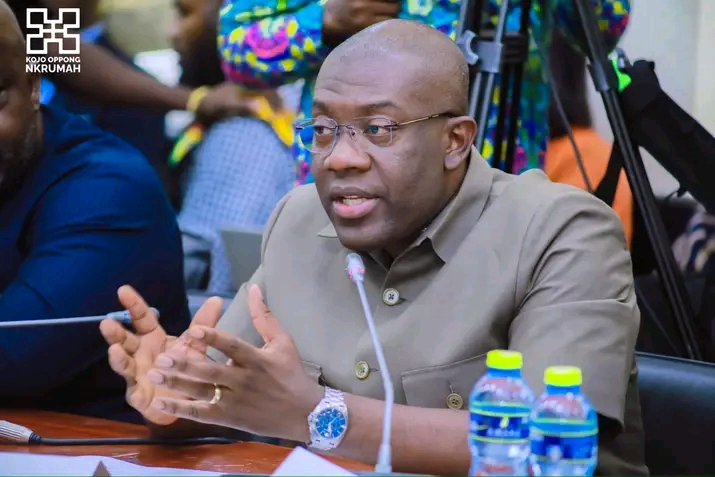Credit: Kekeli K. Blamey
Ghana’s flagship Free Senior High School (Free SHS) policy has once again come under scrutiny, with concerns mounting over the sustainability and efficiency of the school feeding component.
The latest twist in the ongoing debate came from Member of Parliament for Assin South, Rev John Ntim Fordjour, who accused the current administration of failing to deliver on its promises to improve the feeding system.
Rev Fordjour, a key advocate for the Free SHS program under the previous New Patriotic Party (NPP) government, expressed disappointment at the National Democratic Congress (NDC)’s handling of the program since taking office.
Speaking to the media on May 28, he recalled how the NPP implemented a partly centralized system—70% of food was supplied directly, while schools received the remaining 30% in funds to purchase perishables.
According to him, the NDC government had promised a shift to full decentralization, allowing headteachers to manage food procurement themselves.
“It was an attractive proposal,” he admitted, “but I was skeptical about its implementation.” He says those fears have now materialized, alleging that schools have only received direct funding for two weeks out of the several months the new government has been in office.
The MP claimed the government has since walked back on its plan and reverted to centralised food distribution, albeit with more restrictions than before.
“Now schools are allowed to buy only five items, and the rest is centrally supplied—this is worse than what existed under us,” he said.
The issue has reignited partisan tensions over the future and credibility of the Free SHS policy. While the NDC administration has yet to officially respond to the allegations, education stakeholders are increasingly concerned that political bickering could derail one of the most ambitious social programs in Ghana’s history.
Rev Fordjour warned that promises made in opposition often meet harsh realities in governance.
“It’s easy to criticize when you’re not the one implementing,” he said. “But the truth is now clear—expectations were raised, and Ghanaians were let down.”
The feeding policy, crucial to the success of Free SHS, remains a flashpoint in Ghanaian politics, with both major parties trading blame over who is better equipped to manage it.
For many parents and students, however, the question is less about vindication and more about when consistent and quality meals will return to the table.







